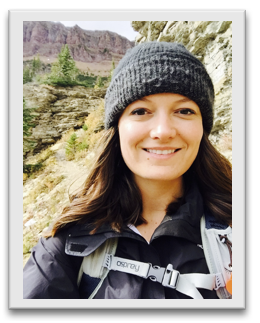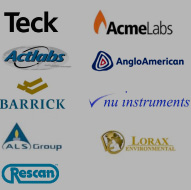 Lindsay Reynolds
Lindsay Reynolds
MSc student
University of Ottawa
I completed my B.Sc. Geology at Mount Royal University in Calgary, Alberta in 2016. I began my undergraduate degree with a dream of pursuing a career in environmental geology. While the program at Mount Royal allowed me to gain diverse experience and knowledge, I graduated even more passionate about developing a career which would contribute to the science of environmental geology. The year I graduated I was fortunate enough to gain employment at Mount Royal University where I worked for one year as an Instructional Assistant in the Department of Earth and Environmental Sciences. This position provided me the experience of operating of the faculty’s X-Ray Diffraction and X-Ray Fluorescence equipment. This work sparked a passion for geochemistry as I grew more familiar with lab technique and sharing my knowledge with students and colleagues.
I am working under the supervision of Dr. Ian Clark and Dr. Uli Mayer on my master’s thesis at the University of Ottawa. We will be working with Environment Yukon’s Site Assessment and Remediation Unit (SARU) as a part of the Yukon government’s ongoing work to clean up legacy contaminated sites. Our work is focused on subsurface diesel contamination in the remote community of Old Crow, Yukon. Our program will utilize and adapt sampling techniques developed at a site in Bemidji, Minnesota for this permafrost setting. This northern site presents unique challenges which require the adaptation of sample techniques in order to factor in natural organic carbon input from the regions organic rich sediments and accurately apportion soil gas contributions from contaminant degradation. In addition to degradation studies, a new in-field sample preparation technique will be tested in this study. Some of the CO2 samples will be obtained in the field as an inert barium carbonate compound. This small solid sample will require minimal processing before radiocarbon analysis by Accelerator Mass Spectrometry. A comparative analysis of both the traditional graphitization method and the new barium carbonate method will be conducted to determine efficiency of this new technique. Samples will be analysed in the A.E. Lalonde AMS Lab at the University of Ottawa. Our work will assist the Yukon Government in cleaning up contaminated sites as an effort to protect both the environment and human health.
Being a member of MAGNET has provided me with a wealth of unique and formative experiences as a geochemist. I consider myself to be fortunate to have worked with fellow geochemistry students and leaders. All of the other trainees have taught me so much about what they study and how they are helping to move this exciting field forward. Not only have I learned about the multiples facets of geochemistry, I have been able to make professional relationships which I know will serve us throughout our bright careers.
Last updated May 2018


 Catherine Armstrong
Catherine Armstrong Laura Bilenker
Laura Bilenker Priyanka Chandan
Priyanka Chandan Carol Cheyne
Carol Cheyne June Cho
June Cho Sarina Cotroneo
Sarina Cotroneo Jamie Cutts
Jamie Cutts Fiona D'Arcy
Fiona D'Arcy Ashley Davidson
Ashley Davidson Nicolas Estrade
Nicolas Estrade Anaïs Fourny
Anaïs Fourny Evelyn Frères
Evelyn Frères Elizabeth King
Elizabeth King Alexander Lemieux
Alexander Lemieux Miling Li
Miling Li Marc-Antoine Longpré
Marc-Antoine Longpré Gregor Lucic
Gregor Lucic Kalina Malowany
Kalina Malowany Eduardo Mansur
Eduardo Mansur Jill McDermott
Jill McDermott Rhy McMillan
Rhy McMillan Aleksandra Mloszewska
Aleksandra Mloszewska Nichole Moerhuis
Nichole Moerhuis Emily Mullen
Emily Mullen Genna Patton
Genna Patton Jean-David Pelletier
Jean-David Pelletier Elizabeth Phillips
Elizabeth Phillips Nabila Rahman
Nabila Rahman Lindsay Reynolds
Lindsay Reynolds Luiz Felipe Salim Amaral
Luiz Felipe Salim Amaral Cheyenne Sica
Cheyenne Sica Elliott Skierszkan
Elliott Skierszkan Kate Smith
Kate Smith Natalie Szponar
Natalie Szponar Victoria Tweedie
Victoria Tweedie Tom Ver Hoeve
Tom Ver Hoeve Clara Waelkens
Clara Waelkens Nicole Williamson
Nicole Williamson Anne Wozney
Anne Wozney Wang Zheng
Wang Zheng


 Site by Sprout Creative
Site by Sprout Creative